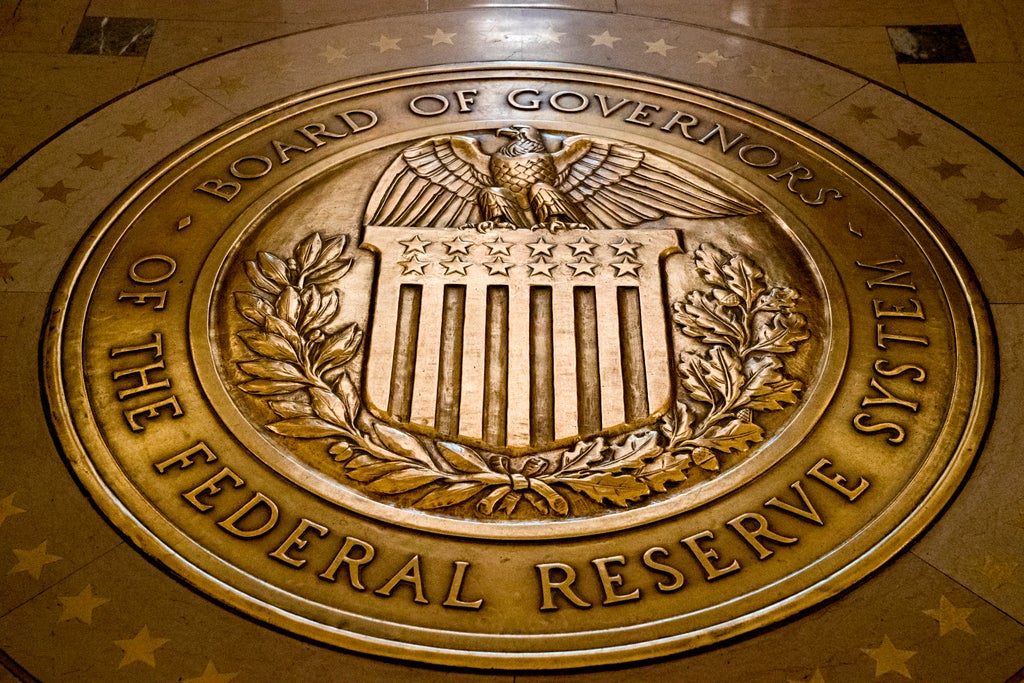
President Joe Biden's pick to be the Federal Reserve's top banking regulator pledged Thursday to help reduce high inflation and provide “clear rules” to govern financial innovation.
“I strongly believe that inflation is far too high today and I’m committed to bringing it down to the Federal Reserve’s target of 2%," Michael Barr told members of the Senate Banking Committee, which is considering his nomination.
Inflation has soared to 8.3%, near a 40-year high, with the cost of items like food, gas and airline tickets having skyrocketed from 12 months earlier. The Fed is facing the difficult and high-risk task of curbing high inflation by sharply increasing interest rates without causing a recession. Widespread doubts about its ability to achieve that goal have helped send the stock market plunging.
Barr was a top Treasury Department official during the Obama administration and helped design the 2010 Dodd-Frank financial regulations after the devastating 2008 financial crisis. He is now the dean of the University of Michigan’s Gerald R. Ford School of Public Policy.
If approved by the committee and confirmed by the full Senate, Barr would join the Fed's Board of Governors as the vice chair for supervision, a position created by the Dodd-Frank legislation. As one of seven members of the board, Barr would also have a permanent vote on interest rate decisions at each of the Fed's eight policy meetings each year.
Barr received mostly mild questioning and faced little of the strong opposition that sank Biden’s first choice for the post, former Deputy Treasury Secretary Sarah Bloom Raskin.
Raskin ran into unanimous disapproval from Senate Republicans and from West Virginia Democratic Sen. Joe Manchin. They argued that she would go too far to weigh the impact of climate change as part of the Fed’s regulatory authority and possibly discourage banks from lending to oil, gas, and coal companies.
Barr sought to play down the Fed’s role regarding climate change, saying that its “authorities here are important, but quite limited, quite narrow."
The Fed “should not be in the business of telling financial institutions to lend to a particular sector or not to lend to a particular sector," he said.
Barr has come under criticism from some liberal groups for having investments in and serving on the boards of numerous financial-technology firms. Under questioning from Sen. Elizabeth Warren, a Democrat from Massachusetts, he pledged to not seek employment from firms that are regulated by the Fed.
Warren has previously endorsed Barr for the position, and so has Manchin, suggesting he is likely to receive Senate confirmation.
Barr also echoed concerns outlined in a recent Fed report on financial stability by noting that stablecoins carry “run risk,” or the risk that they will collapse in value as holders of the coins, which are often pegged to the dollar, seek to cash in their coins all at once. If the coin issuer doesn’t have sufficient assets to redeem them, investors can lose money.
Congress and financial regulators should “wrap their arms around those financial stability risks, and regulate so that we don’t have situations where people are holding an asset that they believe is a cash instrument, but it actually is not,” Barr said.
There has been only one other vice chair for supervision, Randal Quarles, whose term ended in January. Quarles drove several changes to financial regulation during his term that drew criticism from progressives. They argued that, among other moves, Quarles took steps that reduced the capital that banks are required to hold to ensure they remain solvent. Still, the banks overall emerged from the COVID pandemic in solid financial shape.
Barr is also a Rhodes scholar who clerked for Justice David Souter on the Supreme Court. He also served during the Clinton administration at the White House, the Treasury Department and the State Department.
Barr’s hearing comes after the Senate has approved several other nominees to the board, giving Biden a chance to put a Democratic stamp on the Fed. The Senate last week confirmed Jerome Powell to a second four-year term as Fed chair, and late last month approved Lael Brainard for the No. 2 position of vice chair.
This month, the Senate also confirmed Lisa Cook, an economics professor at Michigan State University, and Philip Jefferson, an economist at Davidson College, to the Fed's board.







